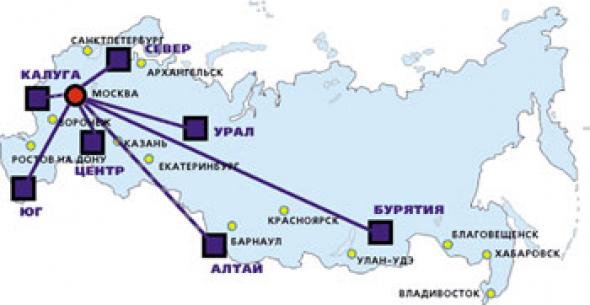Russian Cybernauts' Bumpy Ride
Pro&Contra, the recent summit between politicians and representatives of Russia’s internet community saw both sides aiming wide and firing blanks. Oleg Kireev explains why.
Having spent a pretty carefree first decade, the Russian internet world has had a rude awakening. No sooner had the century begun than parliament began drafting an internet legislation bill and police teams visited the offices of ISPs, seizing documents. A meeting between net community representatives and officials at the Government Press Centre did little to affect a rapprochement, with the fifty-plus year-old suits intimidated by the younger generation’s hair and ear rings, and vice versa. With both sides deeply flawed (the intelligentsia lacking political will, those in power competence), the discussion was confined to an emotional debate over symbolic issues, while economic policy around the Internet went unmentioned.
The bureaucrats churned out banalities: one deputy connections minister complacently announced that we already have more than two thousand "domain hosts", so Russian Internet was in a healthy state. Another glorified Russian telecommunications, which rang hollow for anyone who’s ever tried to make a phone call in Moscow, let alone the countryside. The deputy press minister Seslavinsky provocatively warned the editors of political analysis site Deadline.ru and independent news site Kompromat.ru that prosecutions were on the agenda, significantly glancing at the police representatives’ empty seats (they’d failed to show).
An outside voice was provided by Volker Grassmuck, an internet expert who’d been invited over from Berlin. He informed the meeting that no special legislation existed for the Internet in any country: what can and can’t be done is decided de facto by telecommunications and press legislation. At this point the discussion inevitably turned to issues of constitutional rights, net secrecy and net privacy and the notorious "freedom of expression" question. Anatoly Levenchuk, president of the Russian Internet Academy and founder of the Libertarium.ru site, expressed his decisive protest and submitted his Academy’s own blueprint for legislation.
Protests are one thing, but ultimately the question of net freedom can only be resolved by the political will of the internet community. This community in Russia would be well advised to create their own independent providers along the lines of the Dutch xs4all. They should distribute free software and subvert net copyright, like the GNU activists did. Dialogue with government makes sense only if the community is able to forward workable plans to support small, decentralised providers, the lowering of telephone tariffs and so on. Calling upon notions of "freedom of expression" doesn’t work, as such notions command little respect over here.
One other issue emerged from the discussion: the Russian market in information technologies. A few astute people spoke of the need to generate one — but what they didn’t realise is that it needs to be generated through the creation of internal demand for such production, not by breeding specialists who’ll sell their skills and knowledge to Western companies. If the government really want to help, they should be stimulating the Russian computer market. Net capitalism, like its industrial forebear, searches out cheap labour markets; it’s between three and five times cheaper to hire a programmer from Moscow or Saint-Petersburg than one from Switzerland. At the moment, the Russian labour market seems like a new version of Bangalore. And they’re making a very unstrategic choice: their labour will soon be too expensive, and net globalisation will leave Russia as an old, worn-out colony...
Oleg Kireev <kireev2000 AT mail.ru>
Mute Books Orders
For Mute Books distribution contact Anagram Books
contact@anagrambooks.com
For online purchases visit anagrambooks.com








